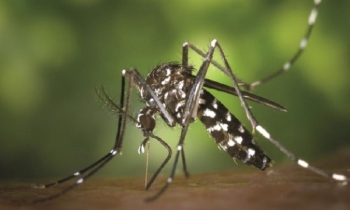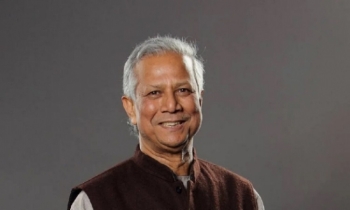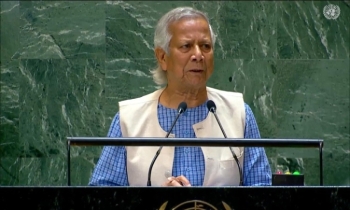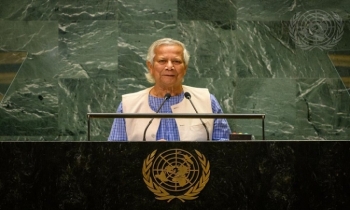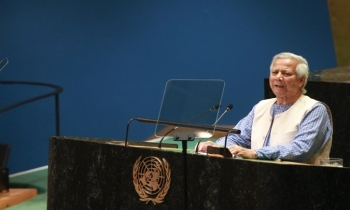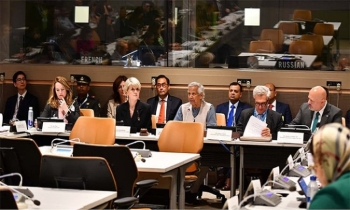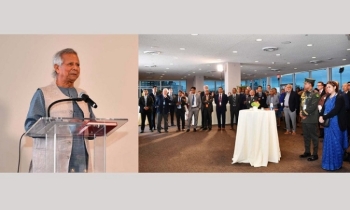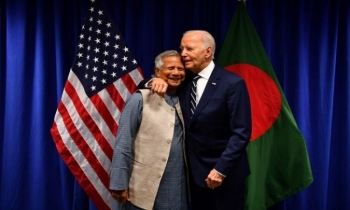Tobacco industry interference rises during pandemic: Report
BI Report || BusinessInsider
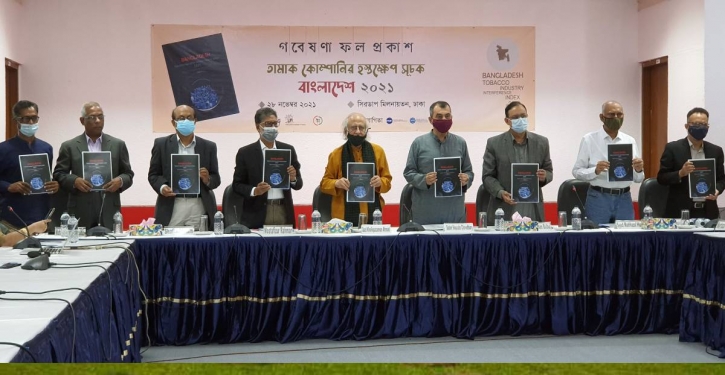
Discussants at the event unveiling the research findings of ‘Tobacco Industry Interference Index: The FCTC Article 5.3 Implementation Report, Bangladesh 2021’ on Sunday. Photo: Courtesy
A recent report has revealed that tobacco industry interference tobacco control measures increased during the Covid-19 pandemic period, breaking from a downward trend of the previous two years.
The country's score in the 2021 Tobacco Industry Interference Index stands at 72 which was 68 last year. The increase in score suggests a worsening trend in terms of tobacco industry interference.
Moreover, the index places Bangladesh on top of tobacco industry interference among South Asian countries.
Bangladesh experiences one of the highest levels of tobacco industry interference in the world contradicting the country’s commitments to ensuring meaningful tobacco control measures, the report said.
Such concerning facts and many more were unveiled on Sunday as the research findings of ‘Tobacco Industry Interference Index: The FCTC Article 5.3 Implementation Report, Bangladesh 2021’ was unveiled during an event at the CIRDAP Auditorium, Dhaka.
The event was jointly organised by Progga and Anti-Tobacco Media Alliance (ATMA).
The incessant interference from tobacco industry has put the public health of Bangladesh at substantial risk.
Due to aggressive activities of tobacco companies during the Covid-19 pandemic, the implementation of the World Health Organization (WHO)'s Framework Convention on Tobacco Control (FCTC) and also the realization of Bangladesh's own vision of being a tobacco-free country by 2040 are now under threat of being derailed.
The study findings show that Bangladesh has experienced an increase in tobacco industry interference during the study period (January 2020-March 2021) and there has been no progress in the implementation of Article 5.3 Guidelines.
The time period has also seen a recurrence of tobacco industry's attempt to interfere and exert influence in policymaking via diplomatic channel.
On behalf of Japan Tobacco Inc. (JTI), the Ambassador of Japan to Bangladesh wrote a letter to the finance minister where the diplomat said, any tobacco control measure that may hurt business interest of JTI would cause a cessation of the flow of Japanese FDI into the country.
Tobacco Industry’s move during pandemic
The report covers stark anti-public health move that took place during the early days of Covid-19 pandemic.
In April 2020, the ministry of industry exempted two transnational tobacco companies, BAT Bangladesh (BATB) and JTI Bangladesh from the obligations of nationwide lockdown through a government order.
The ministry also instructed the local administration and law enforcement agencies to assist these companies to continue manufacturing, marketing, leaf purchase and other operations.
The ministry also quickly turned down the Ministry of Health and Family Welfare request to withdraw such special permissions granted to tobacco companies.
Asian Tobacco (Pvt) Ltd, a Bangladeshi tobacco company, was allowed by Bangladesh Export Processing Zone Authority (BEPZA) to establish a cigarette and tobacco processing plant in Ishwardi Export Processing Zone, where the company would enjoy tax exemption and other lucrative facilities.
Another notable incident was the endorsement from ten Members of Parliaments to the bidi industry’s demand for tax reduction in a Demi Official (DO) letter addressed to the finance minister.
Recommendations
The research has also put forth recommendations for amending tobacco control law to make it more compliant with FCTC, by including a comprehensive ban on tobacco companies' CSR activities, among other issues.
It also recommends elimination of cigarettes from the list of essential commodities by amending the 1956 Essential Commodities Act, formulation and implementation of a simple tobacco price and tax policy, divestment of the government's share in tobacco companies, finalization of a code-of-conduct for relevant govt. officials in case of interaction with tobacco companies and their representatives, and withdrawal of all incentives provided to tobacco companies along with a ban on investments in tobacco business.
The discussants included Dr Mary Assunta, Head of Global Research & Advocacy, GGTC; Muhammad Shafiqul Islam, Bangladesh Country Advisor, Vital Strategies; Muhammad Ruhul Quddus, Bangladesh Country Coordinator, Global Health Advocacy Incubator (GHAI), CTFK; Md Mostafizur Rahman, Lead Policy Advisor, Campaign for Tobacco-Free Kids (CTFK); Dr Syed Mahfuzul Huq, National Professional Officer (NCD), World Health Organization (WHO); Syed Mahbubul Alam, Technical Advisor, The UNION, among others.

